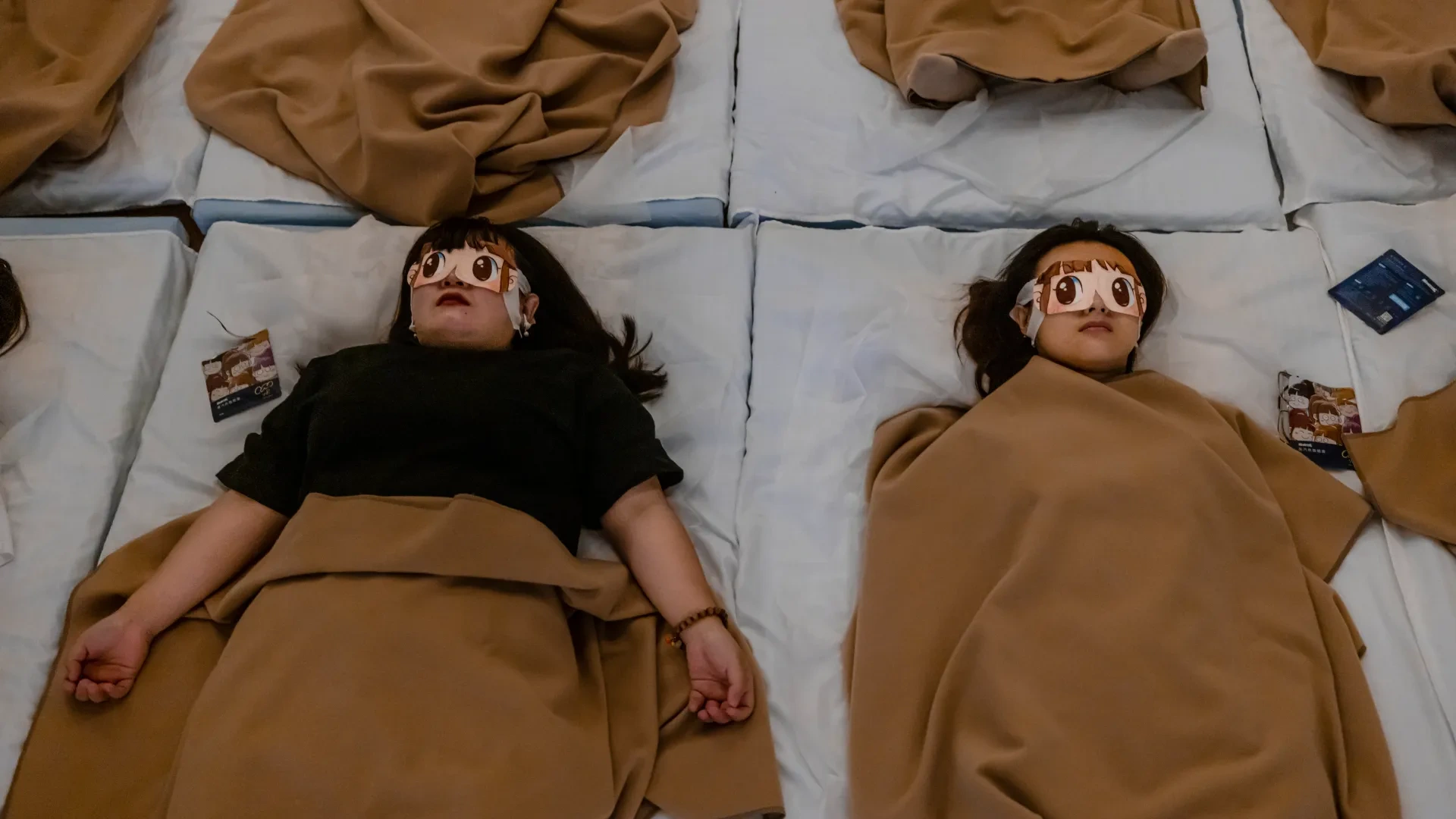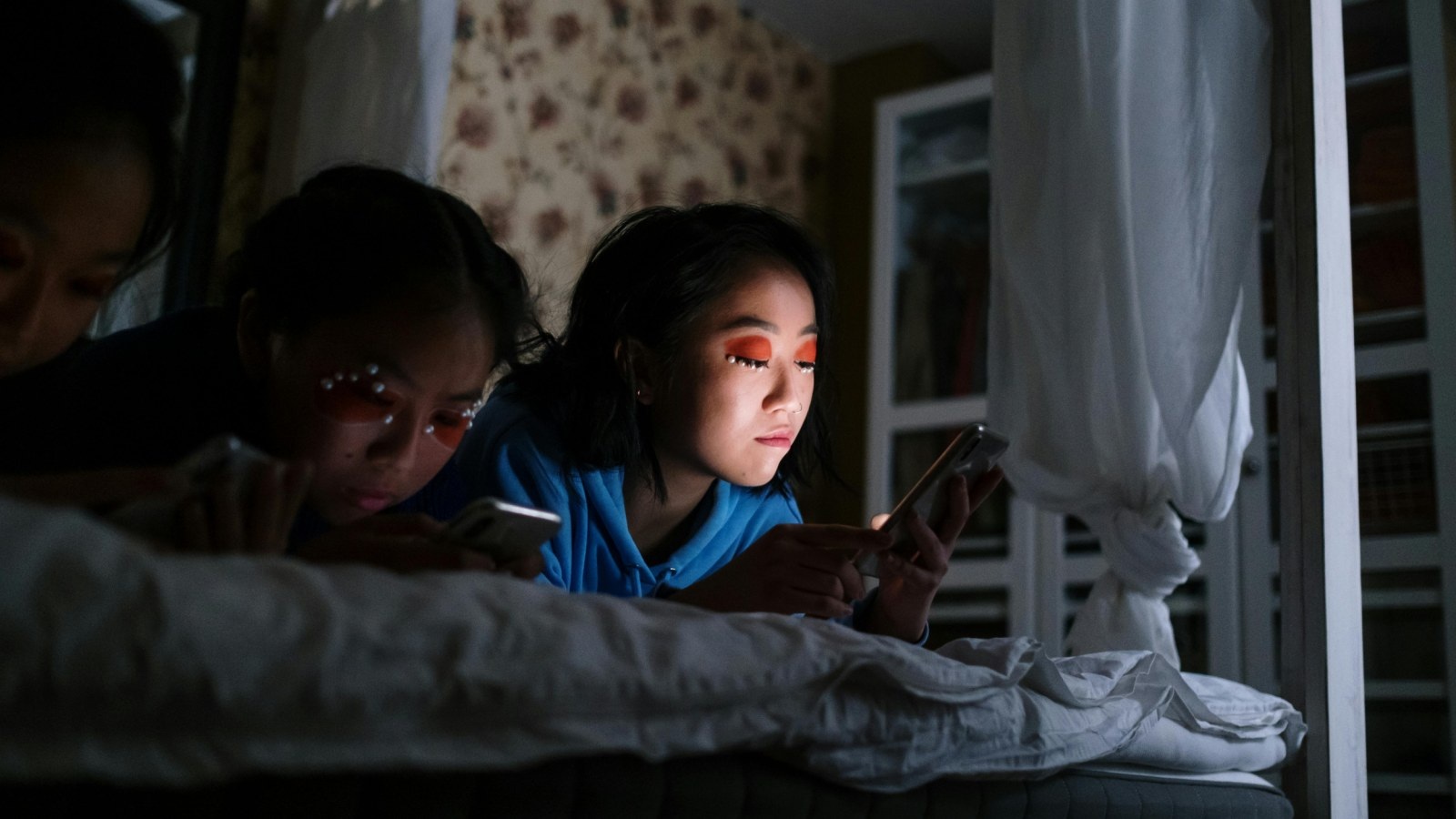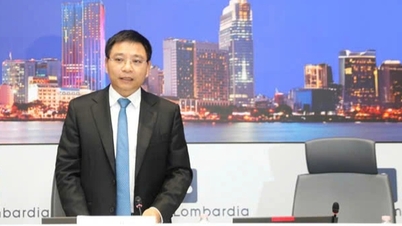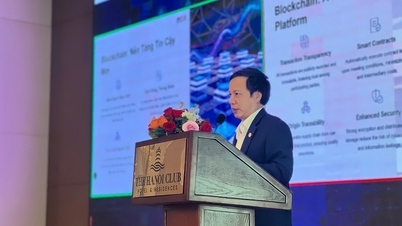In a small corner of Zhejiang province, eastern China, a young girl with a Douyin account (China's version of TikTok) named @jiawensishi regularly shares footage of her "lying down" life.
Her latest video chronicles a day in the life of a true “mouse person.” Her routine is quite unique: she wakes up at noon, followed by a period of “doomscrolling” until 3 p.m. Then she lazes around the house, eyes glued to her phone as she lies on the sofa, then crawls back into bed before 8 p.m. to continue her endless days of intermittent sleep and internet surfing.
The young woman compared herself to a “rat,” a satirical reference to her “energy-draining” and antisocial lifestyle, similar to that of a rodent. Surprisingly, her videos attracted hundreds of thousands of likes and comments, unintentionally sparking a strong response. Many other “rat people” even commented that @jiawensishi’s schedule was still too… “active.”
"Your day is still too busy for me," one user commented. "I don't even bother going to the sofa. I lie in bed from the moment I wake up and only get up to go to the bathroom or eat. I eat and then lie back down. I've lived like that for a whole week without leaving the house."
Another person shared: "Oh my god, I think I'm even more of a "rat" than this blogger. I only eat one meal a day, the rest of the time I just lie down."
Some people even said they only wake up once a day to eat and "can go days without showering."
The “rat man” phenomenon paints a sobering picture of a segment of China’s youth that is not only indifferent to the job race, but also openly promotes a life of indulgence as a way to cope with stress and burnout.
From "lie still" to "mouse people": Gen Z's silent protest
In fact, the "rat people" are not the first manifestation of frustration and rebellion among Chinese youth.
In 2021, the “stay still” (tang ping) movement made headlines when Gen Z and younger millennials rejected the “996” work culture (working from 9am to 9pm, six days a week). They declared they would not try to climb the traditional career ladder, or just do the bare minimum to make ends meet.
If “lying still” is a way of slowing down, then “rat people” seems to be an even further retreat, an almost complete withdrawal from society’s expectations and pressures. Experts say it is a “silent protest” against burnout, disillusionment and an increasingly tough job market.
“This is not simply Gen Z giving up, but a quiet protest against burnout, disillusionment and a tough and unwelcoming job market,” says Advita Patel, a career coach and chair of the British Institute of Public Relations (CIPR).
“When you constantly apply for jobs and only receive silence or rejections, it can seriously erode your confidence and mental health,” she stressed.

Instead of trying to pursue jobs that are out of reach, Gen Z chooses to live like "mouse people" - not bathing or leaving the house for days at a time (Photo: EPA).
Millennials (those born between 1981 and 1996) are considered the most educated generation in history, and Gen Z (those born between 1997 and 2012) are not far behind. However, their financial opportunities and ability to find a job are significantly lower than those of Generation X (those born between 1965 and 1980) who came before them.
In China, the youth employment situation is particularly alarming. Despite government adjustments to the way it calculates unemployment, the unemployment rate for those aged 16-24 (excluding students) remains alarmingly high.
According to figures released in February, 1 in 6 young people are unemployed. Previously, in June 2023, this rate hit a record 21.3% before the monthly data release was paused for re-evaluation. By December 2024, the unemployment rate for this group was adjusted down to 15.7%. However, this figure still shows a challenging labor market for young people.
Pressure from family and society for a stable job, high salary, combined with the increasingly expensive cost of living in big cities are pushing Gen Z into a feeling of suffocation. They see their parents and siblings working hard but still struggling to buy a house and have a decent life. Disillusionment with the "Chinese dream" - something previous generations believed in - makes many young people question the true meaning of "working hard".
The “rat man” trend also has similarities with other trends in the world such as “bare minimum Mondays” or “quiet quitting” in Western countries. All reflect a common fatigue of the younger generation with toxic work culture and unrealistic expectations.
The Dark Side of the "Mouse Hole": The Price of Letting Go
Choosing the “rat man” lifestyle can provide a temporary escape from pressures, a way to protect mental health from the harsh cycle of society. As Ms. Advita Patel commented: “This is not laziness, but fatigue about direction and life. Letting go is sometimes the only way to protect mental health.”
But experts warn of the long-term consequences of being completely disconnected from the labor market and society. Eloise Skinner, a psychotherapist and author, says this can leave young people feeling even more drained in the future. When they are ready to “come out of their shell,” they may find themselves in an even worse position than when they started.
“It’s true that constant rejection can be difficult to deal with. But those who put themselves in challenging situations will develop resilience and adaptability, and be ready to seize opportunities when they arise. Meanwhile, those who choose to sit on the sidelines may find themselves falling behind their peers,” warns Skinner.

Many young people are feeling exhausted by toxic work cultures and unrealistic expectations (Photo: Getty).
There are also risks to publicly portraying a “rat person” lifestyle on social media. Skinner advises that prospective employers may stumble across this content and feel that the candidate’s outlook on life runs counter to the company’s values. Furthermore, prolonged isolation can lead to more serious mental health issues, not just a temporary fix.
Zhang Yong, a social worker in Hubei province, said the “rat man” phenomenon is a clear manifestation of the tendency of young people to withdraw from society. “It is like a passive defense mechanism after they have faced too many failures. They narrow their relationships and simplify their lives to heal themselves.”
There is still light at the end of the tunnel: A chance to turn the tide
While the picture may seem bleak, experts believe that this is not the end of the “rat people”. As long as this period of “lying down” is temporary and does not become a permanent state, most young people are able to recover, even returning to the job market with a clearer direction.
Eloise Skinner believes that Gen Z is still in the early stages of their careers, so allowing themselves a gap year is acceptable. "University is inherently stressful and pressured, many people need a break to rediscover their personal passions, explore different career paths, and simply recharge after years of hard work."
She suggests using this time to reconnect with your life purpose. “Ask yourself: What really excites me? What do I care about most? What are the big problems in the world that I want to help solve? From those initial answers, you can identify your personal mission and find suitable internship opportunities.”
For those ready to get back into the swing of things, starting small can help ease the transition. “For any Gen Zers who are feeling stuck in a rut, my advice is to start small,” says Leona Burton, a career coach and founder of the Mums in Business International community.
“You don’t have to have all the answers right away. Reach out to people you trust, make one positive decision each day, and don’t compare your success to someone else’s path,” she says. “Whether it’s getting a part-time job, starting a small business, or simply getting dressed and going for a walk without your phone, every small step counts.”
Burton's final message is: "Above all, remember: you are not behind, you are not a failure, and you are not alone. But you need to act, and you need to change."

Experts say that Gen Z is still in the early stages of their careers, so allowing themselves a "gap year" (a year off to explore themselves) (Photo: Pexels).
The "rat people" trend in China, as well as similar phenomena happening globally, are not simply isolated stories about the lifestyle choices of a group of young people.
It is a mirror of the enormous pressures, economic uncertainty, and crisis of direction that Gen Z is facing. It raises big questions for policymakers, businesses, and society as a whole about how to build a more friendly, fairer, and more opportunity-filled labor market for future generations.
This “silent resistance” also reflects a shift in perceptions of success and happiness. Not everyone aspires to lofty positions or huge salaries. Sometimes, what they really need is recognition, work-life balance, and a workplace that respects mental health.
However, choosing to "lie in" and turn yourself into a "mouse person" is hardly a sustainable solution. As experts have pointed out, proactively seeking change, starting with the smallest steps and reconnecting with your own life purpose is the key for Gen Z to overcome this difficult period. Society needs to listen, understand and support, but more importantly, each young person himself needs to find inner strength to avoid sinking deeper into the "mouse hole" of stagnation and resignation.
Source: https://dantri.com.vn/kinh-doanh/nguoi-chuot-loi-song-gay-soc-cua-gen-z-that-nghiep-o-trung-quoc-20250513170621959.htm


![[Photo] Closing of the 13th Conference of the 13th Party Central Committee](https://vphoto.vietnam.vn/thumb/1200x675/vietnam/resource/IMAGE/2025/10/08/1759893763535_ndo_br_a3-bnd-2504-jpg.webp)
























































































Comment (0)